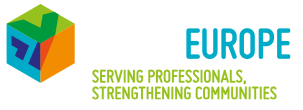Chodesh Tov and welcome to the month of Elul.
This is an anticipatory time of year as we prepare for the yamim noraim (high holy days) of Rosh HaShanah (Jewish New Year) and Yom Kippur (Day of Atonement). Now is the time to reflect on the past year and consider how we will do better next year. In Jewish terms this is the process of teshuva (which literally means “return”). Surprisingly, or perhaps not, the process of change and improving ourselves is not so easy. So this month we’ll look at the Jewish concept of teshuva (often translated as “repentance”) and ‘The Challenge of Change’.
Surprisingly, or perhaps not, the process of change and improving ourselves is not so easy. So this month we’ll look at the Jewish concept of teshuva (often translated as “repentance”) and ‘The Challenge of Change’.
Teshuva
Jewish tradition recognises that we often fail to live up to our best selves and demands and honours learning from our mistakes. Change is always possible.
Teshuva is the idea that we can always change and become better, even if it is not easy. Have you ever tried to make a change in your professional life and found it hard? If so you are not alone! From the Talmud we learn: Rabbi Abbahu said: In the place where people who do teshuva stand, even the full-fledged righteous do not stand. This suggests that people who do teshuva are at an even higher level than righteous people who don’t make mistakes in the first place. It also implies that Rabbi Abbahu knew how difficult change can be.
To expand these ideas, we made a video with Sarah Mali, Director of the Global Leadership Institute at the Jewish Agency about the Challenge of Change. Also look at our teshuva source sheet and answer these questions:
What is one thing you would like to change in your professional life?
What are some of the obstacles to making that change?
Sarah Mali suggests in order to make changes we need to set SMART tests for ourselves. What would be a SMART test to effect change?
S – Specific – What is the one change you want to make?
M – Measurable – How can you evaluate the test?
A – Achievable – Will it stretch you without overstretching you?
R – Relevant – How does the goal tie into your professional work?
T – Time bound – When will this aim be accomplished by?
For example, if a person avoids difficult conversations as they don’t like dealing with conflict, examples of a SMART goal could be: During the next event planning meeting (time bound, relevant) I will state my mind when I disagree with someone (specific, achievable), and will make a note of people’s reactions and their impact on the project (measurable). Also critical is sharing this change process with a mentor or trusted friend to help reflect on the change process and its results.
So be brave – make the change, and encourage you team to do the same. Watch the video with your colleagues or team, and use our Sefaria source sheet.
As Hillel used to say: If not now when? (Pirkei Avot 1:14)
Good luck embracing the change!
The Yesod Team
Resources
- For more information about the Jewish concept of teshuva, and others, Hillel International has a great educators curriculum.
- For more texts about teshuva, check out the Yesod source sheet, and others from Machon Hadar.
- There is a great podcast from Pardes about different Jewish approaches to change, called Becoming a Mentch.
- ReformJudaism.org explores the impact of name changing on personal change, and Rabbi Alex Israel looks in depth at the idea of Teshuva.
- For a broader approach to the culture of change the Harvard Business Review looks at how to apply the success of Alcoholics Anonymous 12 step programme to the workplace.
Don’t forget
There is a custom of blowing the shofar during Elul. Go to MyJewishLearning.com for explanations and practical ideas.
Also, by the time you get our next newsletter Rosh Hoshanah (10-11th Sept.) will be upon us, and 10 days later it will be Yom Kippur (19th Sept). For ideas and resources about these days check out our Tishrei resource archive.
